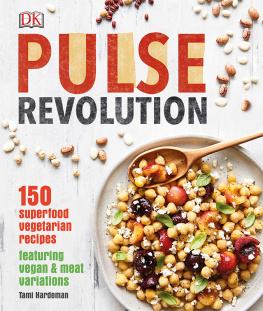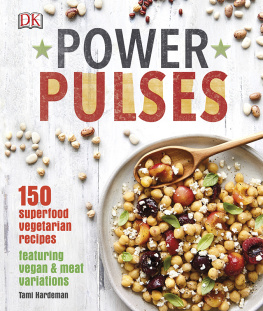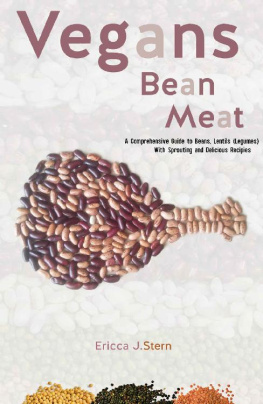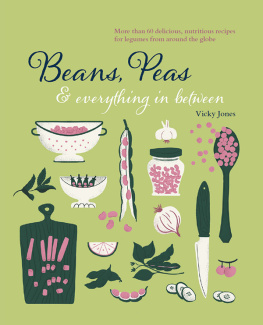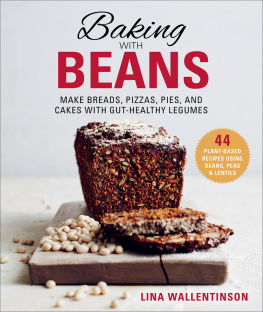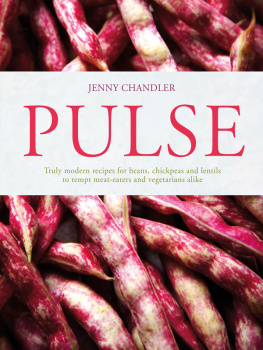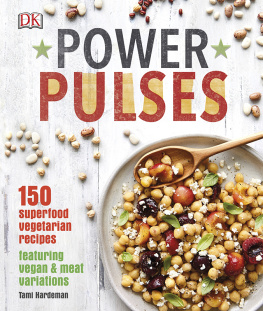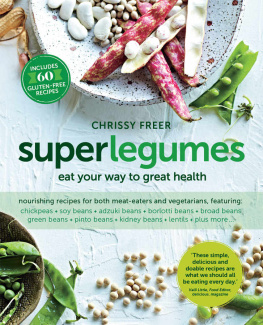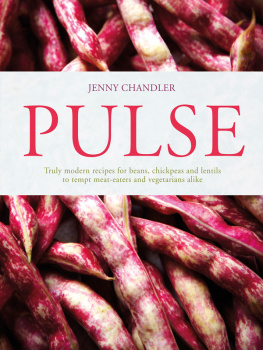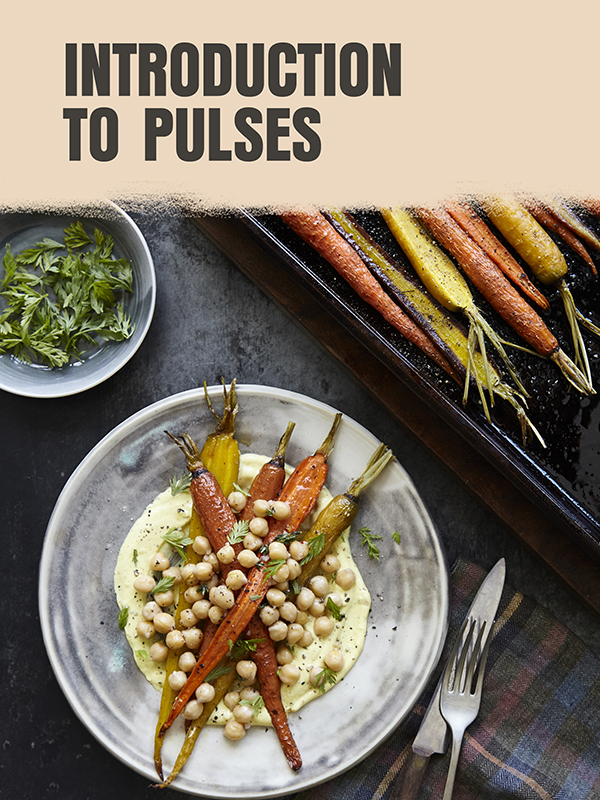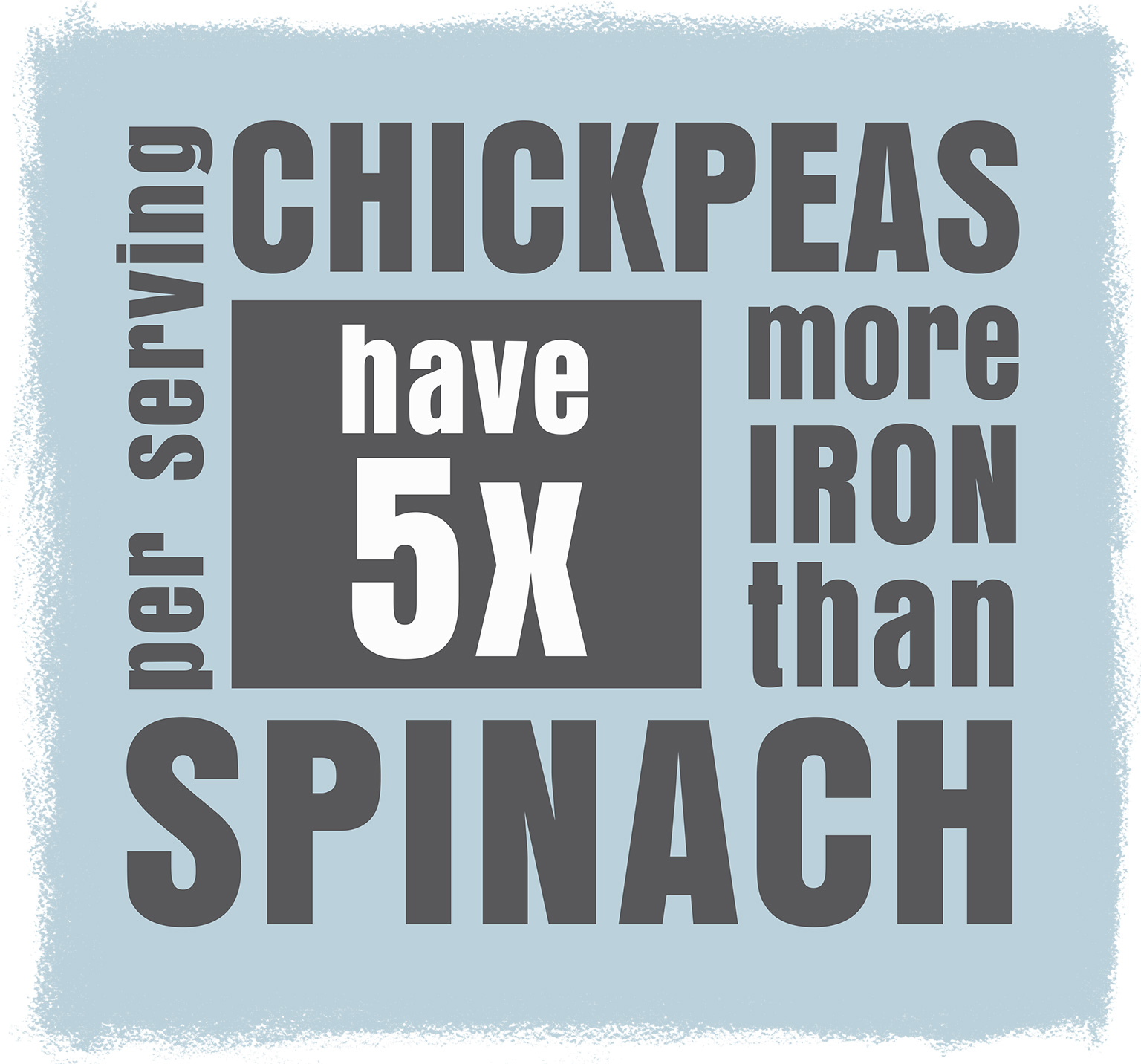Contents
Guide
What are pulses? From the Latin word
puls , meaning porridge or thick soup, pulses are the dried, edible seeds of a legume plant. Nutritious and sustainable, they are an integral part of many cuisines and an easy way to put protein on your plate.
A kitchen staple Tasty and versatile, pulses are a class of legume. Unlike other legume pods that are fresh-harvested or fatty (such as fresh beans, fresh peas, peanuts, and soybeans), pulses are harvested after theyve dried within the pod. The dehydrated seeds are an inexpensive protein source that you can store for years, making them a pantry staple. Once cooked, pulses can be enjoyed in a host of applications, from sweet to savory.
Whether they are braised, roasted, sprouted, or pured, pulses are embraced by vegetarians, vegans, and omnivores alike for their nutrition, convenience, and flavor. How theyre grown and harvested Unlike many legumes, pulses are dry-harvested once fully mature. Home cooks then re-hydrate the seeds by soaking in liquid so theyre suitable for cooking. Farmers choose and plant their seeds during spring in the northern hemisphere and late fall in the southern hemisphere. Wet weather is best for planting. Farmers may roll crop beds flat after planting to improve harvest rates.
Low-hanging pods are less likely to break when theyre cleanly separated from the soil. The pods mature through the next season. Dry weather is ideal for harvesting, so some farmers apply chemicals to aid drying, especially during cold, wet seasons. Once the pods and seeds have dried, pulses are ready to harvest. If they are harvested too early, then the seeds are too moist for storage. At harvest time, the pods are plucked from the plants.
The dry seeds are separated from the pods, and the pods are discarded. The seeds are processed to ensure quality. Your pulses are cleaned, sorted, split, and milled before finding their way to store shelves and your table. All shapes & sizes From tiny beluga lentils to giant fava beans, pulses come in a vast array of sizes, colors, and textures. They are often grouped into four categoriesdry beans, dry peas, lentils, and chickpeasall of which are easy to prepare and packed with fiber and protein. dry Beans The varieties of dry beans are virtually boundless, but each type is nutritionally dense and deliciously versatile.
Cook your beans in batches, then experiment with their unique flavors and textures by incorporating them into a variety of different dishes. Dry Peas Unlike fresh peas, which are often eaten directly from the pod, dry peas are harvested and shelled once fully mature. Available both split and whole, these pulses have a slightly sweet, earthy flavor and a thick, creamy texture that makes them ideal for soups. Lentils Available in a range of colors and sizes, these tiny lens-shaped seeds are sold both split and whole. They dont require soaking, so theyre quick to cook and hold their shape well. The flavor and texture of lentils are especially suited to soups, salads, and braises.
Chickpeas Also called garbanzo beans, this pulse variety has a distinct hazelnut-like shape. Often found in Indian and Mediterranean cuisines, these plump, firm seeds have a nutty flavor and starchy, creamy texture that is perfect for roasting or blending into dips. Why eat pulses? Pulses not only taste delicious, but theyre also a smart choice for both your body and the world. These humble seeds boast substantial health benefits, and they are one of the most economical and sustainable sources of food. Theyre good for you High in essential vitamins and minerals but low in fat, pulses are widely considered to be a superfood that can fight disease and contribute to a long, healthy life. Pulses are particularly good sources of fiber and protein, a pairing that provides sustained energy but keeps cholesterol levels low.
Beans, chickpeas, peas, and lentils contain between 20 and 25 percent protein by weight, much more than other popular plant-based protein sources, such as spinach and quinoa. This makes them an attractive alternative to meat-based proteins, particularly for vegans and vegetarians. Pulses are also rich in key minerals like iron, potassium, zinc, and manganese, all of which play important roles in maintaining health.
Health benefits
 | Preserve heart health
Cholesterol-free and low in fat, pulses reduce the risk of heart disease. |
 | Boost energy
Pulses are rich in iron, which helps transport oxygen in your bloodstream, rejuvenating your cells and your body. |
 | Maintain the gut
Pulses are fiber-packed and high in prebiotics, your bodys natural digestive regulators. |
 | Improve brain function
High in folic acid, pulses can improve mental and emotional health. |
 | Aid weight loss
Pulses contain amino acids that boost metabolism as well as soluble fiber to make you feel fuller, longer. |
 | Control diabetes
Complex carbohydrates and a low Glycemic Index provide steady glucose release to regulate insulin in the blood. |
Theyre good for the planet Not just good for your body, pulses are good for everybody. Theyre good for the planet Not just good for your body, pulses are good for everybody.
Pound for pound, they can feed more people than meat and require just a fraction of the resources required to raise livestock. Growing pulses also enriches the soil, improving crop yield. Greater water efficiency Pulse crops such as lentils and chickpeas are well-adapted to semi-arid climates and are more drought-tolerant than other crops, so they require less water than other plants and livestock. They also use water differently than other crops, drawing from the shallow depth of the soil and leaving the deeper-down water in place for the next years growth. Water used to produce one pound Growing pulses is significantly more sustainable for the environment than managing livestock.

